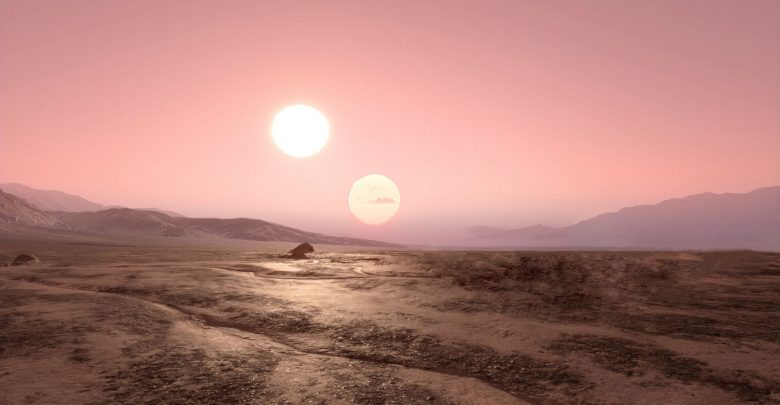Once Upon a Time in the Outer Rim
Episode I: Last Skiff to Mos Vaada

Beck - The Jundland Wastes
Beck cleaned the Czerka cycler for the third time that day. That was one thing he hadn’t had to do back on Corsin, when he carried a blaster rifle instead of a slugthrower. Less maintenance with a blaster, but the components and gas needed to be shipped in from off-world. With a slugthrower, everything you needed to keep it operational, from the firing mechanisms to the slugs, was made right there on Tatooine. He slipped slug after slug into the cycler as he finished up, cursing as he slipped and jammed his finger on the fourth round.
He hated this backwater world, and not just for the lack of modern industry. It was the sand and dirt, too, the barren, wasteland earth that stretched, invariably, all around no matter where you were on the planet.
At that moment, Beck was leaning against the guardrail of an open-air skiff, smoking a thick, slow-burning cigarra as the ship bobbed and weaved through the rocky terrain of the Jundland Wastes. Jeeda, the crew’s Rodian pilot, kept them moving at a slow clip relative to the craft’s typical operating speed. They weren’t on their way to Mos Vaada for their own sake. They were escorting the long, multicar hover train that skated over the barren land not more than fifty paces to their right.
He loaded the last of the cycler’s eight slugs, locked them in, and stuffed the cleaning rag in the inside pocket of his dirt streaked poncho. He tilted his wide brimmed hat down, shielding his face from the twin suns, and kept his eyes on the rocks that reached up from the ground around them. He chewed on the butt of the cigarra and inhaled a cloud of smoky carababba tabac.
Sand people would shoot at anything that moved, if they were in the mood, but it wasn’t just sand people Beck worried about. The hover train was carrying thousands and thousands of gallons of water for the people of Mos Vaada. Out in the deserts of Tatooine, no matter who you were, you needed water to keep living, which meant water was just the sort of thing worth killing for.
Mos Vaada Transportation, Doga the Prospector’s shipping company that owned the hover train, the skiff Beck rode, and even Beck himself, if you thought about it like that, kept a robust, if ragtag, security detail attached to each water shipment out of Anchorhead. This particular hover train was escorted by a few skiffs, each outfitted with a mounted anti-personnel blaster and carrying half a dozen or so armed mercs, and the train itself was manned by its own security team. Beck could see a few of the mercs standing atop the hover train, rifles in hand, eyes on the terrain, and another skiff drifting further up the way alongside the front end of the train.
Circumstances being what they were, what with the sandstorm of the century on its way, they even had air support for this operation. Granted, it was a rickety light freighter sporting a jury-rigged laser cannon, not exactly the same caliber of air support as the FT-5’s that had flown cover for Beck and his unit back during the war, but it was something. More eyes to keep a look out for trouble never hurt.
“Hey boss, you keep that thing loaded, eh? A clean gun no good if the shooting starts and you got no slugs in it, eh?” the Rodian pilot shouted over the whirring of the skiff engine. Beck’s Huttese wasn’t great, and the Rodian spoke a broken form of the language to boot, but he took Jeeda’s meaning well enough.
“I hear you,” he shouted back, and rested the cycler’s barrel on his shoulder. He kept his eyes on the rising rock faces as the caravan descended into a canyon, deeper into the Jundland Wastes, toward the Western Dune Sea, toward Mos Vaada and a stack of credits. Toward the sandstorm, too, though, and other dangers.
He tightened his grip on the cycler and chewed at the cigarra, exhaling a thick cloud of smoke into the Tatooine wind.
